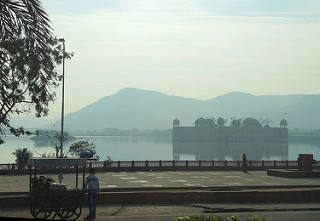The Ontario Neurotrauma Foundation (ONF) is a non-profit organization funded by the Ontario government that works to prevent neurotrauma, and ensure Ontarians with spinal cord and brain injuries lead full, productive lives. ONF is the leader in moving research to evidence-informed health practices that improve the quality of life and health outcomes.
MANDATE: Reporting to the Program Director, Prevention, the Project Coordinator is responsible for supporting program development and planning, communications, knowledge translation, evaluation, and implementation of corporate and Prevention-related activities.
JOB QUALIFICATIONS:
- Knowledge of injury prevention, particularly fall prevention through previous work or study.
- Completion of an undergraduate degree in a related field.
- At least two years’ experience in a project coordination role or equivalent, preferably in a research, government or health service environment.
- Superior written and verbal communication skills, including the ability to summarize and develop audience-specific materials.
- Expertise with technology including Microsoft Office, Adobe Creative Suite, website maintenance (via Content Management System), Google Analytics, email marketing services, online surveys, webinar platforms, social media.
- Experience and/or knowledge of program evaluation tools and approaches an asset.
- Bilingualism (French/English) an asset.
ROLE DESCRIPTION:
Coordinate projects based on the goals and objectives of the neurotrauma prevention portfolio, with a focus on the prevention of falls across the lifespan.
Support the Director, Prevention on program development and implementation of projects, particularly the Fall Prevention Community of Practice (Loop) and Fall Prevention Month (November). Guide knowledge translation, networking, stakeholder engagement and evaluation using a variety of communications platforms
Represent and promote the Prevention program as required, in a variety of settings including webinars, meetings, and conferences. Liaise with various stakeholders including researchers, health practitioners, policy-makers, administrators, service providers, government employees, caregivers and older adult groups.
Support the ongoing needs of ONF and the Prevention program, by preparing materials, compiling information, drafting reports, giving presentations, using social media, contributing to communications projects, and organizing meetings.
Develop an understanding of ONF corporate activities though regular communication with the Program Directors for the Acquired Brain Injury and Spinal Cord Injury programs, as well as the CEO and Program Director, Prevention. Participate in meetings and activities that promote the Foundation and its programs.
Maintain high levels of professionalism, integrity, respect and engagement with other ONF staff, stakeholders, and partners.
Other duties as assigned.
SKILLS:
Time Management / Organizational skills – Organizes self to ensure the timely completion of tasks, demonstrates the ability to prioritize, can multi-task and balance different activities according to timelines.
Project Coordination skills – Develops precise project plans and timelines, keeps logs, regularly communicates with stakeholders using a variety of platforms to update on progress, assesses and modifies the plan as needed.
Writing skills – Writes in clear, concise language and presents content that is appropriate to the purpose and audience. Demonstrates ability to explain complex health topics in plain language.
Technical skills – Has strong computer skills and understands how technology and various communications platforms enhance collaboration with stakeholders.
Facilitation skills – Guides groups to have thoughtful, productive discussions and reach consensus in decision making.
Problem Solving skills – Prioritizes problems, then gathers and analyses the information necessary to determine the best course forward.
Development skills – Envisions possible new projects and partnerships, strategizes and plans around what might be needed to create favourable conditions for the project to occur.
ATTRIBUTES:
Resourcefulness – Knows when to use own judgement and to act independently, able to find quick and clever ways to overcome difficulty, problem solves, seeks advice from others as needed.
Initiative – Contributes ideas, initiates new ways of working, shows enthusiasm for project work and special assignments, suggests opportunities for taking on new projects.
Comprehensiveness – Can focus on project work but at the same time comprehend the wider contexts and long term goals. Determines and suggests strategies required to achieve such goals.
Flexibility – Can be adaptive and accepting of new ideas, able to take direction, willingness to approach new challenges, adjusts plans to meet emerging priorities.
Attention to detail – Able to maintain sustained level of concentration and focus to ensure accuracy, takes special care to review materials to ensure minimal error.
Teamwork – Works collaboratively and effectively with diverse groups of people, takes on a leadership role when required, keeps groups on task, manages conflict well.
APPLICATION INFORMATION:
Salary range: $55,239 – $65,093
Full time, permanent position with benefits.
Start date: July 24th, 2017 (negotiable)
Deadline for applications: June 15, 2017. Please send your resume and cover letter to info@onf.org using the subject line “Project Coordinator, Prevention”.
We thank everyone for their interest in this position but we will communicate only with candidates qualified for the position.
photo credit: Chechi Pe Coordenada polar via photopin (license)









